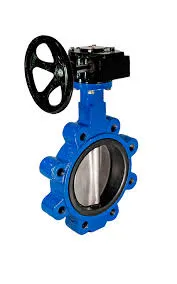10 月 . 22, 2024 13:43 Back to list
Understanding the Functionality and Benefits of Basket Strainers in Fluid Systems
Understanding Basket Strainers Essential Components for Fluid Processing
In various industrial applications, where the flow of liquids or gases is pivotal, the need for effective filtration cannot be overstated. Among the numerous filtration devices available, basket strainers play a crucial role in maintaining the efficiency and reliability of fluid systems. This article will delve into the characteristics, applications, and benefits of basket strainers, highlighting why they are indispensable in fluid processing.
What is a Basket Strainer?
A basket strainer is a mechanical device designed to filter out unwanted solid particles from liquids. It consists of a perforated metal or mesh basket that retains debris while allowing the fluid to pass through. The design typically includes a housing that secures the basket in place. When the fluid enters the strainer, it flows through the perforated basket, trapping any contaminants in the process. This simple yet effective mechanism is vital for protecting downstream equipment such as pumps, valves, and other sensitive components from potential damage caused by debris.
Key Features of Basket Strainers
1. Material Basket strainers are predominantly constructed from robust materials such as stainless steel, carbon steel, bronze, or plastic. The choice of material depends on the specific application, including the type of fluid being filtered and the operating environment.
2. Mesh Size The filtering capability of a basket strainer is determined by the mesh size of the basket. Different applications require varying levels of filtration; therefore, strainers can be equipped with diverse mesh sizes ranging from coarse to fine, tailored to the needs of the system.
3. Flow Direction Most basket strainers are designed for horizontal or vertical installation, affecting fluid flow and maintenance procedures. The orientation choice is essential to ensure optimal performance and ease of cleaning.
4. Pressure Ratings Basket strainers can handle a range of pressure ratings. Understanding the necessary pressure requirement is crucial to ensure the strainer can withstand the operational conditions without compromising performance.
Applications of Basket Strainers
Basket strainers find applications across multiple industries, making them versatile components in fluid management systems
basket strainer

1. Water Treatment In both municipal and industrial water treatment facilities, basket strainers are used to filter out debris before the water undergoes further processing. This prevents clogs in pumps and treatment systems.
2. Oil and Gas In the oil and gas sector, basket strainers are vital for preventing solid impurities from entering the pipelines and equipment, thus safeguarding operations and ensuring the quality of the produced fluids.
3. Chemical Processing The chemical industry often utilizes basket strainers to protect pumps and reactors from particulate matter that can interfere with chemical reactions or result in equipment wear.
4. Food and Beverage Food processing plants implement basket strainers to maintain product quality by filtering out contaminants before packaging.
Benefits of Using Basket Strainers
1. Protection of Equipment By filtering out debris, basket strainers play an essential role in prolonging the lifespan of pumps, valves, and other downstream equipment. This reduces maintenance costs and downtime.
2. Enhanced System Efficiency Keeping solids out of the fluid flow ensures a smoother operation, enhancing the overall efficiency of the process.
3. Ease of Maintenance Most basket strainers are designed for easy access and cleaning, which facilitates regular maintenance. This simplicity encourages adherence to maintenance schedules, preventing operational disruptions.
4. Customizability Basket strainers can be tailored to meet specific operational needs, including customization of basket sizes, materials, and flow orientations.
Conclusion
Basket strainers are integral components in various fluid processing systems, serving as the first line of defense against contaminants that can disrupt operations. Their simple yet effective design, coupled with a wide array of applications across different industries, underscores their importance in maintaining system integrity and efficiency. As industries continue to advance and evolve, the role of basket strainers will remain central in ensuring fluid systems operate smoothly and reliably. Embracing technology and innovation in strainer design will further enhance their functionality, solidifying their status as indispensable tools in fluid management.
Share
-
Understanding the Differences Between Wafer Type Butterfly Valve and Lugged Butterfly ValveNewsOct.25,2024
-
The Efficiency of Wafer Type Butterfly Valve and Lugged Butterfly ValveNewsOct.25,2024
-
The Ultimate Guide to Industrial Swing Check Valve: Performance, Installation, and MaintenanceNewsOct.25,2024
-
Superior Performance with Industrial Swing Check Valve: The Essential Valve for Any SystemNewsOct.25,2024
-
Industrial Swing Check Valve: The Ideal Solution for Flow ControlNewsOct.25,2024
-
You Need to Know About Industrial Swing Check Valve: Functionality, Scope, and PerformanceNewsOct.25,2024